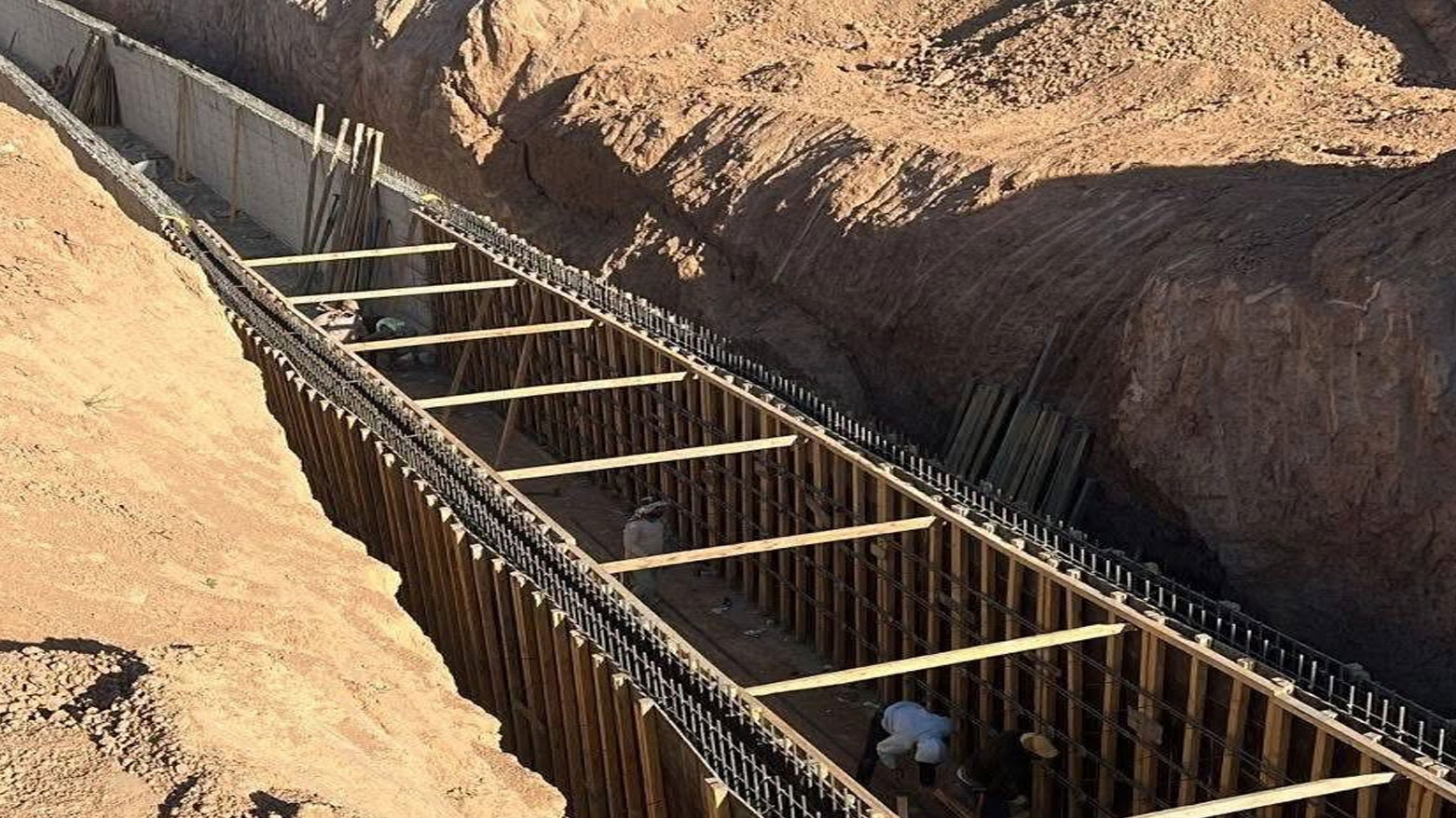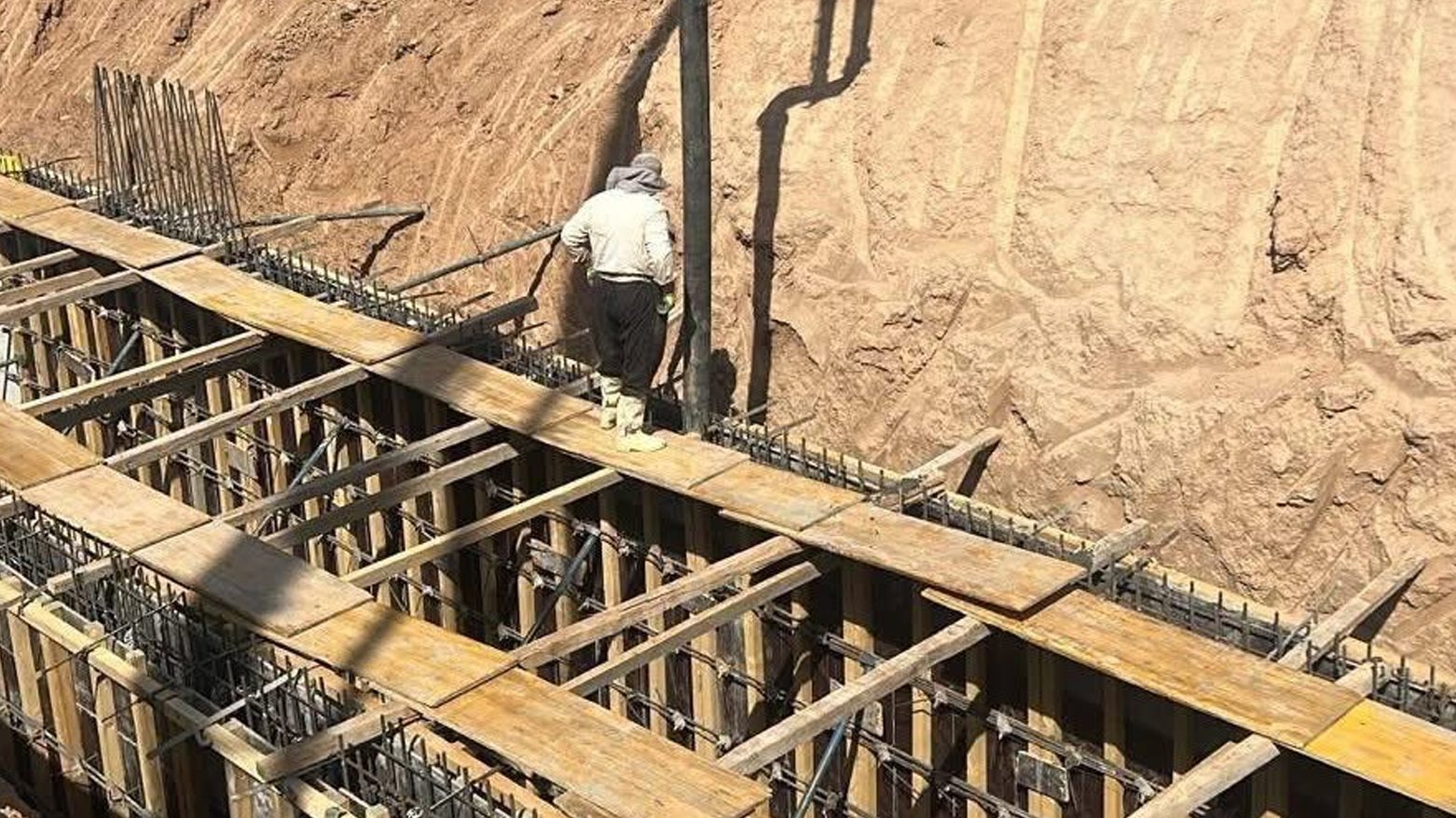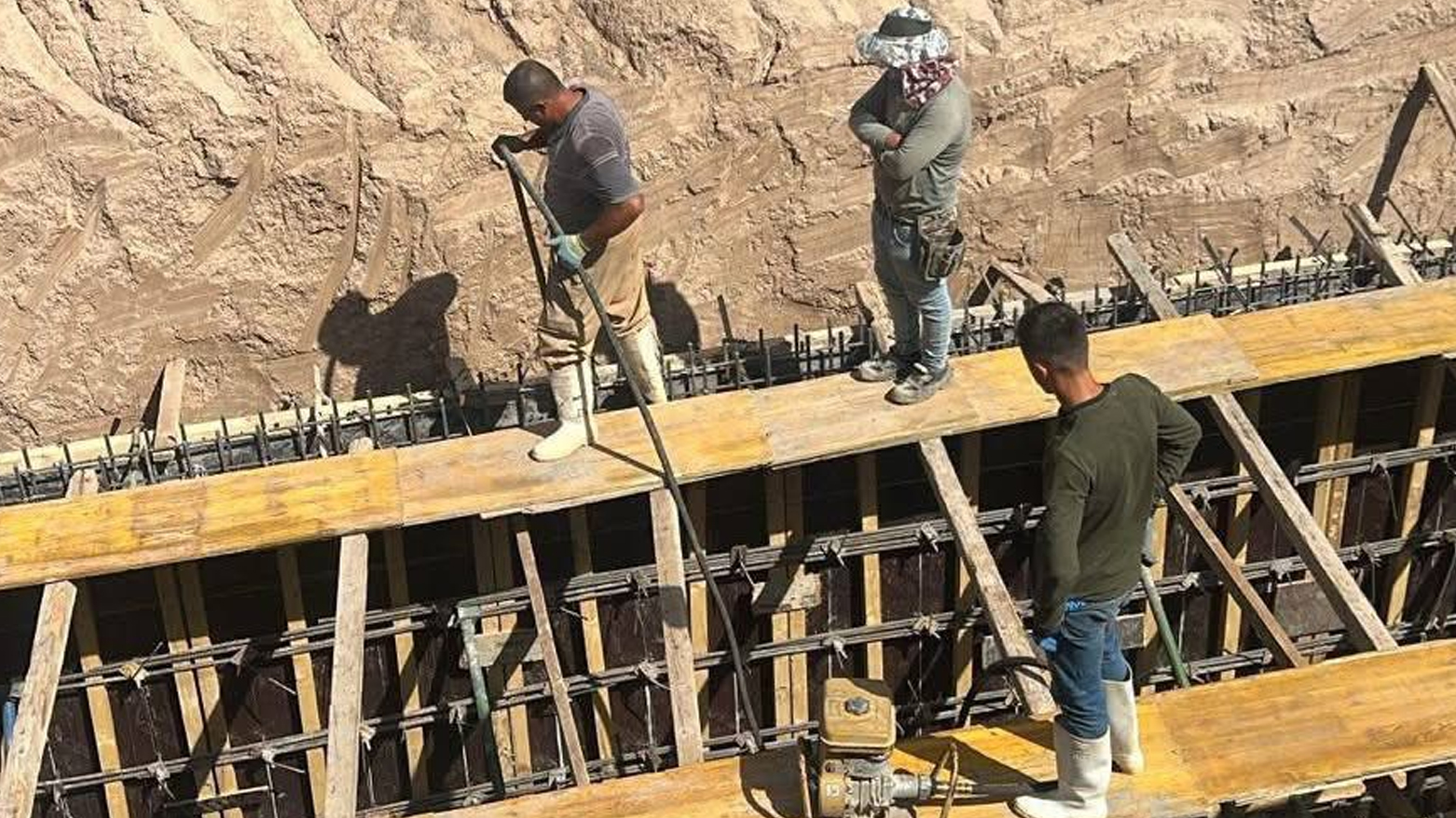KRG Launches Major Urban Drainage and Water Infrastructure Projects to Combat Flooding and Water Shortages
The KRG is launching two major infrastructure projects: a rainwater drainage system along Erbil's Kirkuk Road and a $424 million water project to supply Sulaimani from Dukan Dam for 30 years, addressing flooding and water shortages.

Erbil (Kurdistan24) – The Kurdistan Regional Government (KRG) has announced the launch of two landmark public infrastructure projects designed to tackle the twin challenges of urban flooding and long-term water scarcity across the Kurdistan Region.
In Erbil, the provincial administration has begun implementing a major rainwater drainage project along the Kirkuk Road, extending from the Gardarasha residential complex to Qatawiya village, while in Sulaimani, the KRG is set to sign a $423.89 million contract for the Dukan–Sulaimani 3 Water Project—a 30-year strategic solution to the city’s chronic water shortages.
In a statement posted on his official Facebook page, Erbil Governor Omed Khoshnaw announced that the provincial government has begun construction of a large-scale rainwater drainage system to protect vulnerable neighborhoods from flooding and reduce the environmental risks caused by heavy rainfall and climate change.
Khoshnaw said the project forms part of the KRG’s broader campaign to deliver essential public services to underserved areas and to enhance the region’s climate resilience. “As part of our commitment to extend basic services to areas most in need and to minimize the risks of floods and environmental degradation, a major rainwater drainage project will be constructed along the Kirkuk Road,” he said.
According to the governor, the project will be implemented under the supervision and financing of the Ministry of Municipalities and Tourism in the Kurdistan Regional Government. The system will connect the main drainage channels near the Martyrs’ Apartments in Gardarasha to Qatawiya village, improving runoff flow and mitigating waterlogging in one of the capital’s busiest transport corridors.
Local engineers describe the project as vital for the city’s urban sustainability, given the increased rainfall variability in recent years and the pressure on existing drainage networks. Once completed, it is expected to significantly reduce seasonal flooding along the Kirkuk corridor and protect residential and commercial zones from recurring damage.


Meanwhile, in Sulaimani, the KRG’s Ministry of Municipalities and Tourism confirmed on Thursday that it will sign a contract for the Dukan–Sulaimani 3 Water Project this Sunday. The project, officially approved by Prime Minister Masrour Barzani, carries a revised budget of $423.89 million, increased from the original allocation of $398.486 million to ensure comprehensive implementation.
The ministry described the project as one of the largest water infrastructure investments in the history of the Kurdistan Region, designed to secure clean, reliable water for Sulaimani’s residents over the next three decades.
According to the ministry’s statement, the project will source water from Dukan Dam, channeling it through an advanced network of pipelines, treatment facilities, and distribution systems to supply thousands of households and businesses across Sulaimani. It aims to reduce dependence on intermittent water sources and create a sustainable, long-term solution to the city’s persistent shortages.
Prime Minister Masrour Barzani personally endorsed the Dukan–Sulaimani 3 project following its presentation to the Cabinet on September 2, 2024, highlighting its importance as part of his administration’s development agenda. His approval of the expanded budget underscores the government’s determination to ensure the project’s full success and to maximize its benefit to residents.
Under Barzani’s leadership, the KRG has prioritized investment in essential public services—including water, electricity, and transportation—aimed at improving living standards, bolstering economic growth, and promoting regional stability.
The Dukan–Sulaimani 3 project, ministry officials noted, also reflects the government’s long-term strategy to build sustainable infrastructure capable of withstanding climate change and population growth. By planning for a 30-year horizon, the KRG seeks to transform Sulaimani’s water management into a model for modern and resilient urban development.
In Erbil, similar initiatives are already reshaping the city’s water landscape. The Erbil Emergency Rapid Water Supply Project, launched in July 2025, represents a nearly $480 million program designed to provide long-term water security for up to three decades. Drawing from the Great Zab River, the project’s first operational phase currently supplies roughly 152,000 subscribers, significantly expanding the capital’s daily treatment and distribution capacity.
Officials have described the project as one of the largest water initiatives in Iraq, enhancing production by approximately 180,000 cubic meters per day and supplementing the existing Ifraz 1–3 systems. It also allows for the gradual decommissioning of overexploited wells, thereby conserving the region’s groundwater reserves.
Once completed, the Dukan–Sulaimani 3 Water Project will provide a reliable, equitable, and efficient water supply to thousands of households and industries in Sulaimani, strengthening public health, sanitation, and economic activity.
The KRG has emphasized that the project’s implementation will follow strict monitoring protocols to ensure that its substantial investment translates into tangible benefits for local communities. The initiative will also generate new employment opportunities, attract private sector participation, and promote confidence in the KRG’s ability to plan, execute, and sustain large-scale infrastructure programs.
Officials highlighted that both the Erbil drainage project and the Sulaimani water initiative are critical components of the KRG’s integrated vision for urban modernization and environmental adaptation, ensuring that cities across the region are prepared for the challenges of the next generation.
As part of this vision, Prime Minister Barzani’s administration continues to position the Kurdistan Region as a regional leader in sustainable development, with major water, drainage, and climate-resilient infrastructure projects now marking a new era of progress, public service, and stability.